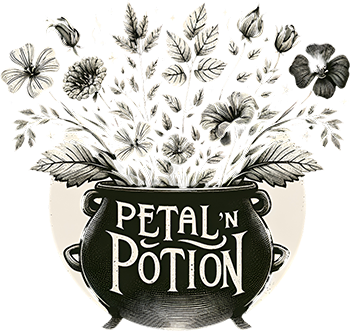Y o u r G u t

The gut, often referred to as the body’s second brain, plays a critical role in overall health and well-being. It is responsible for digesting food, absorbing nutrients, and eliminating waste products and toxins. A healthy gut supports the immune system, balances hormones, and even impacts mental health.
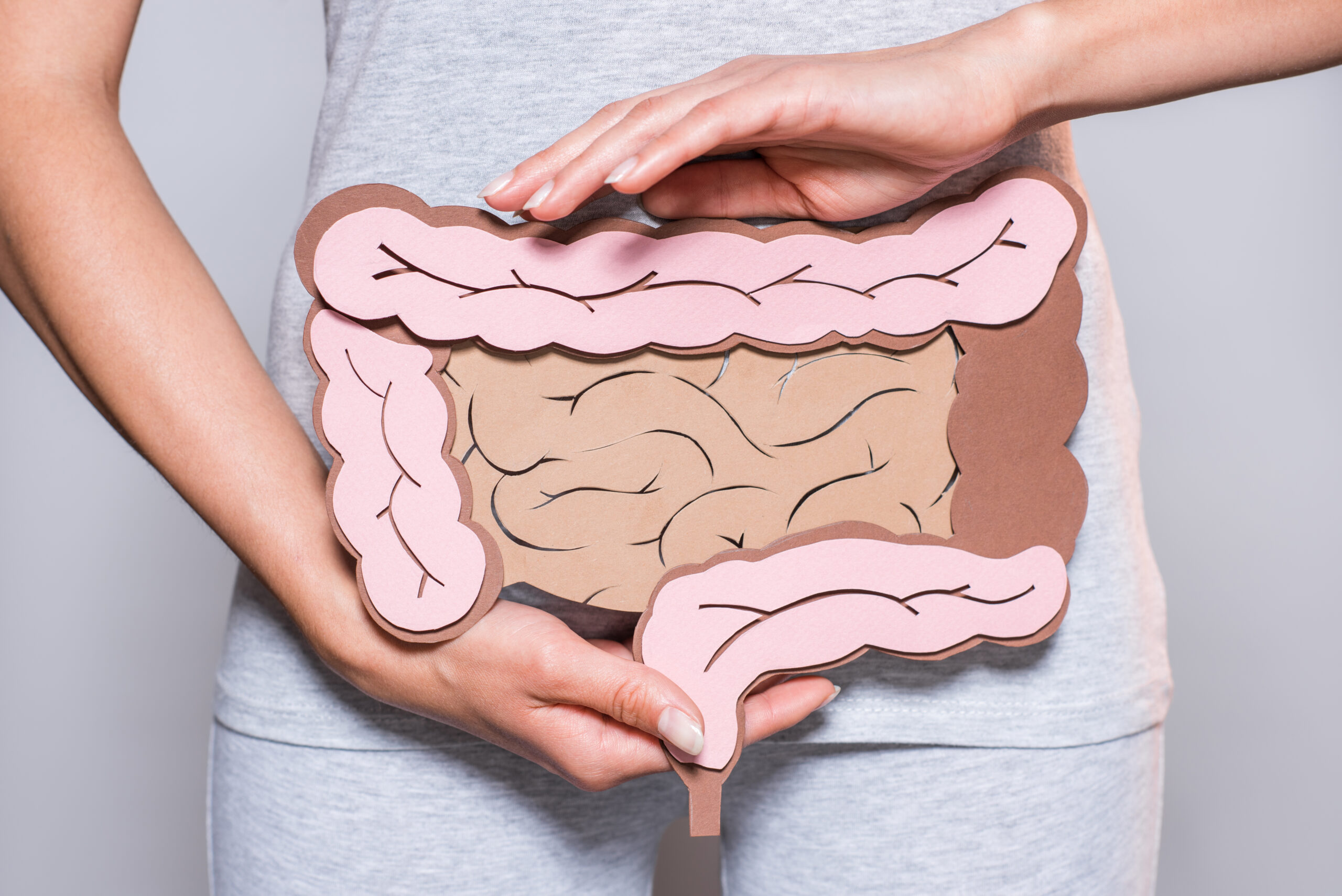
Understanding
T h e G u t
The gut is a complex system that includes the gastrointestinal (GI) tract and its associated organs. It is home to a diverse community of bacteria known as the gut microbiome, which plays a crucial role in various bodily functions, including digestion, immunity, and detoxification.
This guide will explore the anatomy of the gut, how it functions, and its role in detoxification. We will also provide methods to support gut health, lifestyle factors to enhance gut function, and a detailed pre-cleanse timeline to prepare your gut for optimal detoxification.
A n a t o m y o f t h e G u t
The gut consists of several interconnected organs, each with a specific role in digestion and detoxification:
- Mouth: The starting point of digestion, where food is mechanically broken down by chewing and chemically broken down by saliva.
- Esophagus: A muscular tube that transports food from the mouth to the stomach.
- Stomach: A sac-like organ where food is mixed with gastric juices, breaking it down into a semi-liquid form called chyme.
- Small Intestine: The primary site of nutrient absorption, where chyme is further broken down by digestive enzymes.
- Large Intestine (Colon): Absorbs water and electrolytes, forms solid waste, and harbors a large number of beneficial bacteria.
- Rectum and Anus: The final sections of the digestive tract, responsible for the excretion of waste.
Understanding
H o w t h e G u t w o r k s
Digestion and Absorption
- Mechanical Digestion: Begins in the mouth with chewing, which breaks food into smaller pieces.
- Chemical Digestion: Saliva in the mouth contains enzymes that start breaking down carbohydrates. Gastric juices in the stomach further break down proteins and fats.
- Nutrient Absorption: Most nutrients are absorbed in the small intestine through the villi and microvilli, which increase the surface area for absorption.
- Water Absorption: The large intestine absorbs water and electrolytes from the remaining indigestible food matter, forming solid stool.
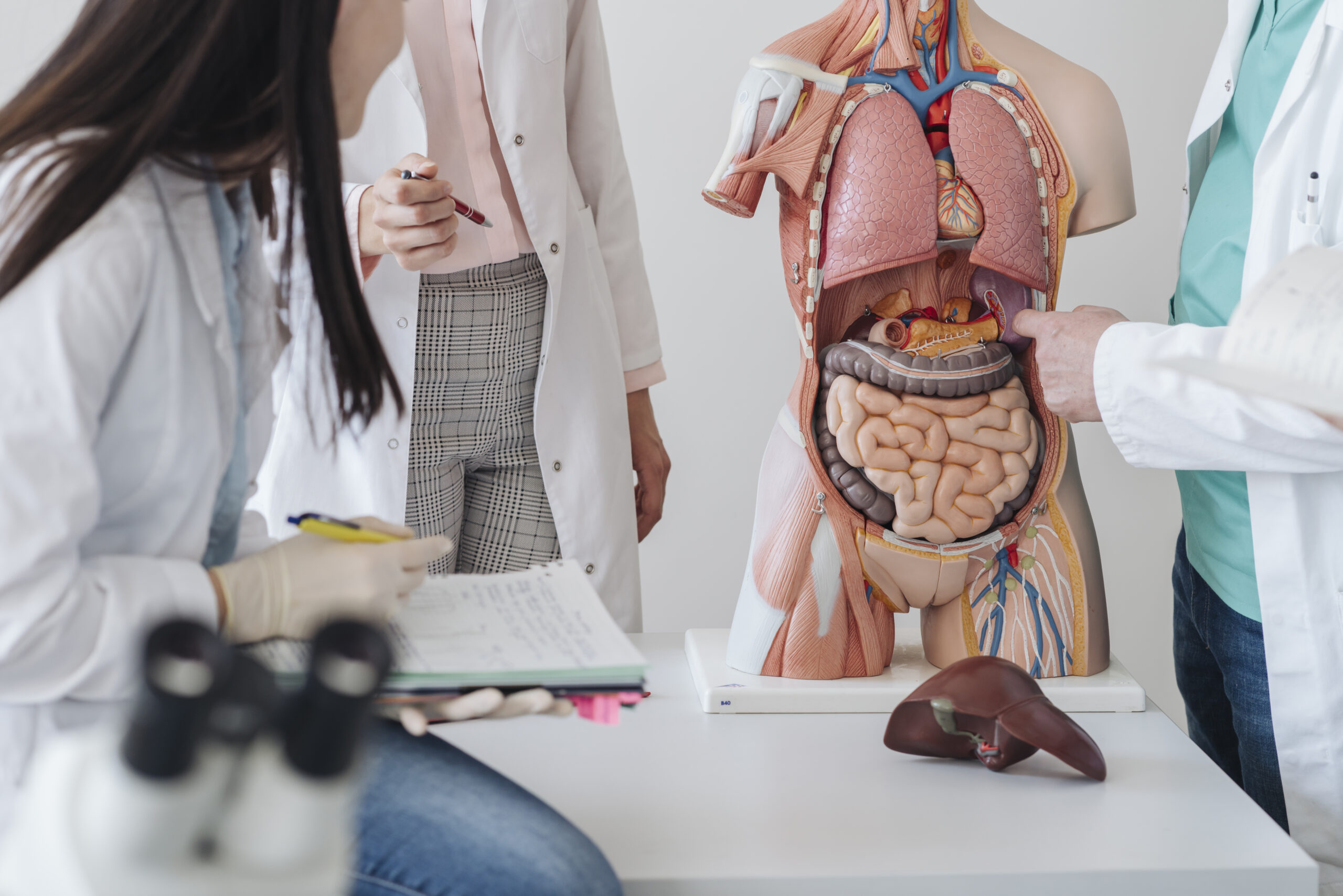
T h e G u t M i c r o b i o m e
- The gut microbiome consists of trillions of bacteria that aid in digestion, produce vitamins, and protect against harmful pathogens.
- A balanced microbiome is essential for maintaining gut health and overall well-being.
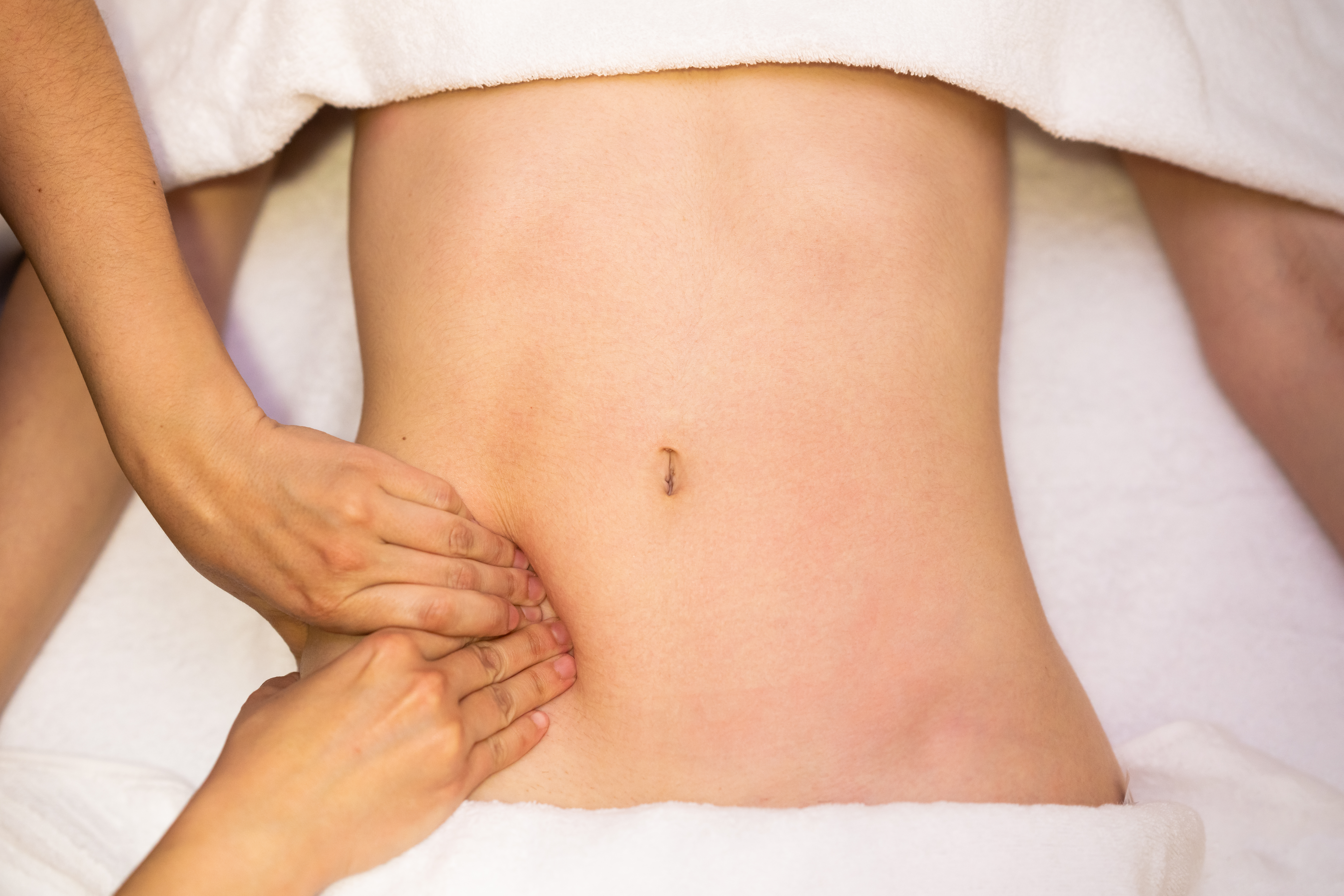
The Role of the
G u t i n D e t o x i f i c a t i o n
The gut is a primary organ of detoxification, responsible for the elimination of waste products and toxins. A healthy gut ensures that toxins are efficiently removed from the body through bowel movements, reducing the burden on other detox organs like the liver and kidneys. A compromised gut, however, can lead to the reabsorption of toxins and various health issues, including leaky gut syndrome.
Methods to
S u p p o r t G u t D e t o x i f i c a t i o n
Healing Leaky Gut
Leaky gut syndrome occurs when the lining of the intestines becomes damaged, allowing undigested food particles, toxins, and bacteria to “leak” through the intestinal wall into the bloodstream. This can trigger inflammation and an immune response, leading to various health problems.
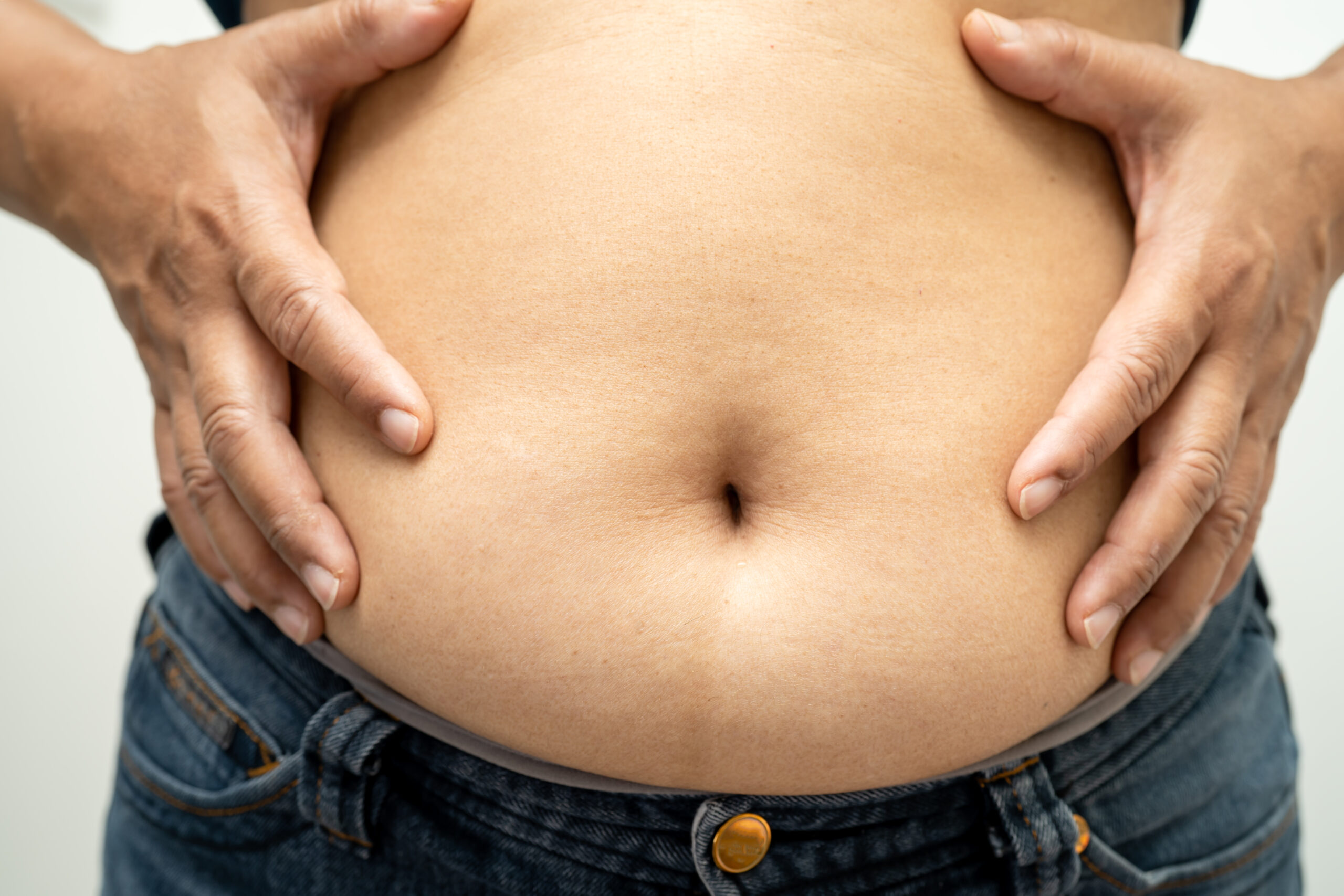
Steps to Heal Leaky Gut
- Eliminate Trigger Foods: Identify and eliminate foods that may contribute to gut inflammation, such as gluten, dairy, processed foods, and sugar.
- Include Gut-Healing Foods: Incorporate foods that support intestinal health, such as bone broth, fermented vegetables, and foods rich in omega-3 fatty acids (like salmon and flaxseeds).
- Supplement with L-Glutamine: L-glutamine is an amino acid that helps repair the gut lining. Consider taking a supplement as directed by a healthcare professional.
- Use Probiotics and Prebiotics: Probiotics are beneficial bacteria that support gut health, while prebiotics are fibers that feed these bacteria. Foods rich in probiotics include yogurt, kefir, and sauerkraut. Prebiotic foods include garlic, onions, and bananas.
- Reduce Inflammation: Include anti-inflammatory foods like turmeric, ginger, and green leafy vegetables in your diet to reduce gut inflammation.
- Manage Stress: Chronic stress can negatively impact gut health. Practice stress-reducing activities like yoga, meditation, and deep breathing exercises.
Benefits of healing Leaky Gut
- Improves Digestion: Healing the gut lining enhances nutrient absorption and digestion.
- Reduces Inflammation: Lowering inflammation can alleviate symptoms like bloating, gas, and abdominal pain.
- Boosts Immune Function: A healthy gut supports a robust immune system, reducing the risk of infections and illnesses.
- Enhances Overall Health: Healing the gut can improve energy levels, mental clarity, and overall well-being.
Probiotics & Prebiotics
Maintaining a healthy balance of gut bacteria is essential for optimal gut function and detoxification.
Probiotics:
- Sources: Fermented foods like yogurt, kefir, sauerkraut, kimchi, and miso.
- Benefits:
- Enhances Digestion: Probiotics aid in breaking down food and absorbing nutrients.
- Supports Immune Health: Beneficial bacteria help fight off harmful pathogens.
- Reduces Gut Inflammation: Probiotics can help alleviate symptoms of inflammatory bowel conditions.
Prebiotics:
- Sources: Foods high in fiber, such as garlic, onions, leeks, asparagus, bananas, and whole grains.
- Benefits:
- Feeds Good Bacteria: Prebiotics provide nourishment for beneficial gut bacteria, promoting their growth.
- Improves Gut Motility: Fiber-rich foods help maintain regular bowel movements and prevent constipation.
- Supports Overall Gut Health: A diet rich in prebiotics fosters a diverse and healthy gut microbiome.
How to Incorporate:
- Include a serving of fermented foods in your daily diet.
- Eat a variety of high-fiber foods to ensure a steady supply of prebiotics.
- Consider a high-quality probiotic supplement, especially if you have specific gut health concerns.
Dietary Changes
Making strategic dietary changes is fundamental to supporting gut health and detoxification.
Anti-inflammatory Diet:
- Foods to Include: Fresh fruits and vegetables, lean proteins, healthy fats (like avocados and olive oil), and whole grains.
- Foods to Avoid: Processed foods, refined sugars, artificial additives, and trans fats.
- Benefits:
- Reduces Inflammation: An anti-inflammatory diet helps lower gut inflammation, supporting overall digestive health.
- Promotes Nutrient Absorption: A nutrient-dense diet ensures your body gets the vitamins and minerals needed for optimal function.
Hydration:
- Importance: Adequate water intake is crucial for digestive health. Water helps break down food, absorb nutrients, and eliminate waste.
- How to Stay Hydrated:
- Drink at least 8-10 glasses of water daily.
- Include hydrating foods such as cucumbers, watermelons, and oranges.
Intermittent Fasting:
- How it Works: Intermittent fasting involves cycling between periods of eating and fasting. Common methods include the 16/8 method, where you fast for 16 hours and eat during an 8-hour window.
- Benefits:
- Restores Gut Health: Fasting can help reset the gut and promote the growth of beneficial bacteria.
- Reduces Inflammation: Giving the digestive system a break can reduce inflammation and support gut healing.

Lifestyle factors to
E n h a n c e G u t F u n c t i o n a n d H e a l t h
- Regular Exercise: Physical activity promotes regular bowel movements and reduces stress.
- Adequate Sleep: Quality sleep is essential for gut health and overall well-being.
- Stress Management: Chronic stress negatively impacts gut health. Practices like mindfulness, yoga, and deep breathing can help.
- Avoid Antibiotic Overuse: Antibiotics can disrupt the gut microbiome. Use them only when necessary and consider probiotics to restore gut health.
P r e - C l e a n s i n g T i m e l i n e
week 1
(Days 1-7)
Initial Preparation
- Self-Assessment: Note the condition of your gut health (digestion, bowel movements).
- Set Goals: Define what you aim to achieve (e.g., improved digestion, reduced bloating).
- Eliminate Trigger Foods: Remove gluten, dairy, processed foods, and sugar.
- Increase Water Intake: Drink at least 8-10 glasses of water daily.
- Start Probiotics: Incorporate fermented foods or a probiotic supplement.
- Meal Prep: Plan and prepare meals that include gut-healing foods.
week 2
(Days 8-14)
Enhanced Support
- Continue Probiotic and Prebiotic Intake: Include a variety of sources.
- Hydrate: Maintain water intake and hydrating foods.
- Introduce L-Glutamine: Start taking a supplement as directed.
- Anti-inflammatory Diet: Focus on nutrient-dense, anti-inflammatory foods.
week 3
(Days 15-21)
Intensifying Efforts
- Intermittent Fasting: Introduce fasting periods.
week 4
(Days 22-30)
Final Steps
- Consistency: Maintain all practices consistently.
- Assessment: Evaluate how your body feels and make adjustments if necessary.
- Preparation for Cleanse: Ensure you are fully ready to begin your parasite cleanse.
Embrace the benefits of a balanced gut microbiome, improved digestion, reduced inflammation, and a stronger immune system. Implementing these practices into your daily routine will not only support your gut’s natural detoxification processes but also contribute to a healthier, more vibrant life. Remember, the journey to better gut health is a continuous process that requires commitment and consistency, but the rewards are well worth the effort.
Stay motivated, stay informed, and take proactive steps toward a healthier, happier you. Your gut will thank you!
